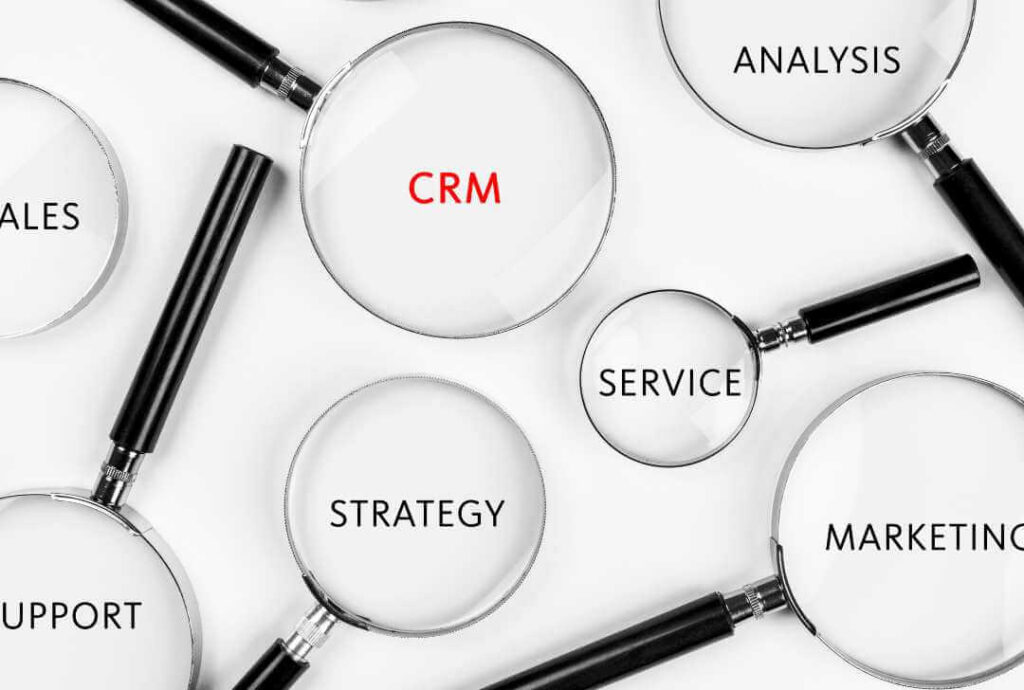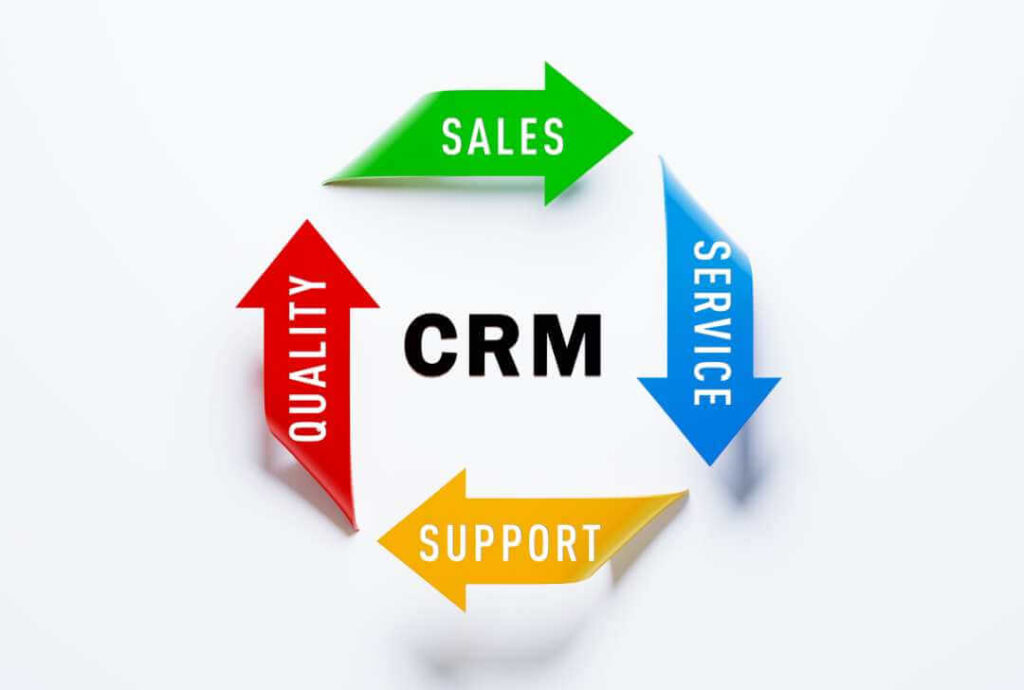Today, customer relationship management (CRM) has become one of the most important elements in keeping businesses running smoothly and efficiently. A CRM company in India ensures successful CRM programs with careful planning and necessary components in place before implementation can begin.
A top notch crm implementation steps can help you understand the process of CRM implementation and provide you with what you need to get started on your own CRM program today! A CRM company in India, with their CRM software helps business owners stay on top of their customer interactions and sales leads by providing visibility into the entire process from prospecting to follow-up.
A CRM company in India can help you integrate end-to-end business decisions, allowing you to make better, more informed decisions from automating customer data entry to creating segmented customer lists However, it can be difficult to truly personalize every experience when using this software. Here are some ideas to help you use your CRM software in a more personalized way so you can make each interaction as meaningful as possible.
Thoughts for a CRM company in India to consider while implementing a crm

Implementing customer relationship management (CRM) software allows a firm to manage its interactions with both present and potential clients. Businesses may analyse client interactions, monitor leads effectively, and streamline procedures with a successful CRM deployment. Here we have mentioned few points or factors to check while implementing CRM software.
Set up your system for crm implementation
The first step in crm implementation is setting up your system. When it comes to CRM implementation, there are two options – either you do it yourself or let a company do the job for you. In order to set up your system, go over the resources and prepare them accordingly.
These could include a support team and any software required for integration with other applications and devices. Another important factor when implementing CRM systems is understanding how these will integrate with other systems such as financials and sales pipeline management tools. The next step would be developing a process which can then be executed by an automation tools.
Use data from your sales team to create targeted content
Your sales team is the key to your success. If they are not getting enough leads or not making sales, then you have a problem. You should be using data from their lead generation and sales process to create targeted content that will help them close more deals faster.
For example, if you have a number of prospects in your pipeline that are likely to convert soon, but need additional information before they can make a decision on purchasing from you, then you can use targeted content in order to request feedback and find out what information they need in order to proceed.
This will allow your sales team to pitch the right people at the right time and maximize the chance of converting them into customers.
Look for a CRM software that allows you to track every interaction you have with a customer
CRM software allows you to track every interaction you have with a customer. This software can help you better understand your customer, find out what they’re looking for, and serve them exactly what they need.
Plus, it’s important to have a system in place that will allow you to be personal with every interaction. It doesn’t matter if you’re just starting out or are an established business owner; investing in a CRM system is the way to make sure that your business is going to grow.
An ERP developer integrates your end-to-end business decisions with a CRM company in India. CRM (Customer Relationship Management) software can help streamline and automate customer-facing processes that are critical for the success of an organization.
From sales and marketing to customer service, a CRM solution can help an ERP developer manage customer data, track communication history, and manage customer relationships more efficiently.
Empowers sales teams to manage sales cycle and customer data in one centralized place
CRM implementation enables business owners and sales teams to manage all aspects of their sales cycle and customer data in one centralized place. These days, customer data is no longer a one-off experience; it’s a long-term relationship. With the right CRM implementation steps, you can manage every aspect of that relationship from lead capture to renewals.
Customer data changes over time, so keeping your customer records up-to-date is crucial. When combined with a well thought-out marketing strategy and personalized service, CRM empowers business owners and sales teams to provide their customers with an unparalleled experience.
Use the data from your customer service team to improve the customer experience
Every customer’s experience is different. This is why it’s important to understand the data from your customer service team and use it to improve the experience for every customer. For example, if your team sees that a certain demographic of customers tend to be unhappy more often, it might make sense to put in additional resources for that group. Use the data you have available to tailor the experience for each individual. Make it tailor made for effective use.
Research your options
When it comes to CRM implementation, there is no one size fits all. There are many different options, and they come in all shapes and sizes. While you may have a preference for a certain type of CRM, it’s important to research your options so that you can find the best fit for your organization.
The first step in the process is to determine your goals for implementing CRM. Once you have those figured out, you’ll be able to better evaluate your options. You may want to talk with other business owners who’ve implemented CRMs in the past to see what was most helpful or what they would change if they could do it again.
Top 5 Types of CRM Systems

CRM is a powerful, sales-focused customer relationship management tool that teams of all sizes love using. With CRM implementation, teams can easily manage customer information, track sales progress, and automate routine tasks to maximize efficiency.
It also offers a wide range of features that help teams improve customer relationships, including automated lead scoring, marketing automation, and robust analytics. Plus, the cloud-based platform is secure and customizable, so teams can tailor it to their specific needs and processes.
- Cloud-Based CRM: Cloud-based CRM systems are hosted on the cloud and allow for remote access, giving employees the flexibility to access business data from anywhere.
- On-Premise CRM: On-premise CRM systems are installed on the company’s local server, offering greater control and security.
- Social CRM: Social CRM systems allow companies to interact with their customers through social media channels like Twitter, Facebook, and LinkedIn.
- Mobile CRM: Mobile CRM systems provide on-the-go access to customer data, allowing employees to stay connected and manage customer relationships while away from their desks.
- Analytics-Based CRM: Analytics-based CRM systems are used to analyze customer data and provide insights into customer behavior and preferences. This helps companies make more informed decisions about their customer relationships.
CRM implementation manages sales data and company's internal communication tools.

It’s important to personalize every customer experience and the best way to do this is with a customer relationship management software. When you have a good CRM implementation in place, it helps in sales and planning to document management and company internal communication tools.
So you can see if your customers are happy or not, if they’re satisfied with your products, if they’re still engaged after the purchase and when they need attention. A well-run CRM program also helps you keep up on what your competitors are doing so you can stay ahead of them.
A CRM system can help in sales and planning by generating leads, tracking the progress of a sale, managing customer data, providing reports on how well marketing campaigns are working etc. This software can help in document management by storing documents related to a customer (like contracts, invoices, etc) and provide company internal communication tools like email notifications or SMS alerts.
A CRM implementation should be tailored to the needs of your organization. When you are implementing a CRM system, it is important to define your goals for that implementation. What does your company want to accomplish? Why is this CRM going to help you reach those goals? Defining these goals will help you decide which features and modules are needed. You’ll gain more knowledge about your sales, revenue, efficiency, and customer loyalty over time from the primary CRM setup.


